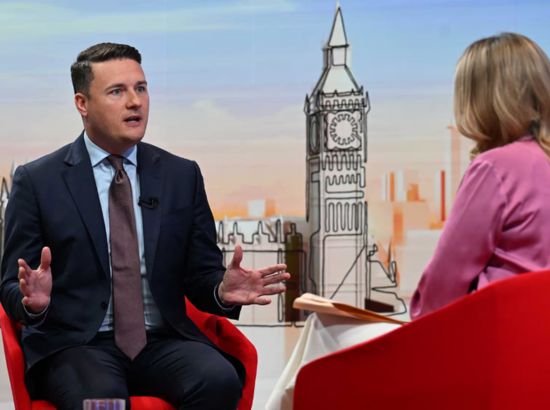
Health Secretary Wes Streeting has acknowledged that Reform seen as serious threat following their breakthrough in local elections, signaling a potential shift in Britain’s political landscape. Speaking after the party’s recent gains, Streeting said Reform could overtake the Conservatives as Labour’s primary rival at the next general election.
Streeting called on voters to give Labour time to deliver results, arguing that reversing the country’s problems would take longer than the nine months Labour has had in power.
“We’ve got the message, we’re not daft, we haven’t got our heads in the sand,” he told the BBC.
He insisted Labour is focused on urgent issues such as reducing waiting lists, improving border security, enhancing public safety, and easing the cost of living crisis.
Reform UK made significant strides in the recent local elections, capturing 677 council seats, taking control of 10 local authorities, and narrowly winning a byelection from Labour. The Conservatives, meanwhile, lost 674 seats, and Labour shed 187.
Speaking on Sky News, Streeting admitted that the party must take the Reform threat seriously.
“There’s clearly a realignment happening on the right of British politics,” he said.
He likened the rivalry between Reform and the Conservatives to “Alien vs. Predator,” noting that neither is Labour’s preferred challenger—but one may emerge as the main threat.
Conservative leader Kemi Badenoch pushed back against internal calls to resign following her party’s heavy losses. Appearing on the BBC’s Sunday with Laura Kuenssberg, she said:
“Protest is in the air. But we are taking the slow and steady route back. There will be bumps along the way, but we can do this.”
She argued that both Labour and Reform offer hollow promises, warning that removing the Conservatives won’t automatically fix the country’s challenges.
Zia Yusuf, chair of Reform UK, revealed that the party would implement a tough immigration policy if it wins national power, including deporting people who enter the UK illegally. He also said Reform would cut spending on diversity, equality, and inclusion at local council levels.
Although Yusuf couldn’t quantify the expected savings, he promised that taskforces and auditors would eliminate what the party considers “unnecessary spending.”
Reform is now in charge of councils in Kent, Nottinghamshire, Derbyshire, North and West Northamptonshire, Lincolnshire, Staffordshire, Doncaster, Lancashire, and Durham.
Streeting’s remarks confirm Labour now views Reform as more than a fringe party—it’s a real political force. The reshuffling of voter loyalty suggests the next election could bring unpredictable dynamics, especially if Reform continues to chip away at the Conservative base.